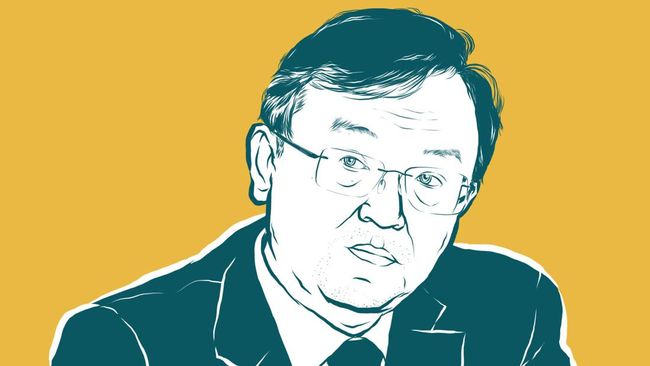To help a child grow up, should the development of autonomy take precedence over, for example, that of sociability? Let’s go back to a standard that is gaining ground, from kindergartens to families.
The “autonomy” of the child has become a leitmotiv of today’s society. Educational institutions are looking for him, as well as parents. And the world of marketing is no less: we’ve seen a pair of shoes praised for … the scratches on him should develop the autonomy of their very young owner!
How to understand the omnipresence of this contemporary value? What are the problems? Is it possible to criticize this search for infantile autonomy? These questions suppose to go back to the history of representations of the child’s psychological development, as well as to the history of the school.
Indeed, the evolution of the child’s status in kindergarten is emblematic of the rise of these injunctions to autonomy. In the 60s and 70s this institution was considered a “before”, even an “elsewhere”, compared to the school, certainly preparing students for school subjects but also a place for games and parties, marked by emotional relationships between children and ‘teacher.
Since the 1980s, educational policies have constantly reformed this institution to reorient it towards the transmission of school learning. Kindergarten was increasingly thought of as the first moment of school, until it became mandatory in 2019. More than in the past, teachers need to justify their work and demonstrate that a lot of learning takes place, supported by children’s achievements.
From emotions to learning
A “productivist” logic. it is therefore implemented from the beginning of kindergarten (2-3 years). The teachers do not have more time to teach the child to become a pupil, so to speak, but they need it already to carry out the many school activities foreseen, with a tight rhythm. In this context, multiple expectations of the child’s autonomy develop.
-
First of all, it is about autonomy in school learning: being able to concentrate, carrying out a task on your own until the end, decoding the information necessary for the successful completion of the activity, etc.
-
It is also a affective autonomy. The child must quickly fulfill his role as a pupil, which presupposes a certain emotional state: the ability not to play with his classmates during moments of activity, for example the “control” of some emotions that do not favor school work, etc. ).
-
Finally, it is about autonomy in the management of one’s own body care. Kindergarten teachers think of themselves, even more than in the past: they are also more qualified, which is no stranger, as teachers. Therefore, they feel that it is not their responsibility to take care of the baby’s body size and hygiene. Children turn out like this much less accompanied especially in the toilet of fifty years ago.
These expectations of autonomy do not only concern kindergartens. At the crib, Catherine Bouve he is concerned about similar developments. We have been able to observe that several kindergartens consider the development of autonomy more important than the development of sociability, for example.
This autonomy is then particularly worked on in the context of dressing, undressing or during meals. It’s about knowing how to do it yourself, and quickly, without the need for an adult.
A form of individualism
Several criticisms can be leveled at this search for autonomy by the child. First, it seems that autonomy can convey the vision of an individual who hardly needs others anymore. A form of individualism, even solipsism, could be contained in the notion itself. This is all the more problematic since, on the part of the child, learning always presupposes an interaction, an accompaniment by another, which opens up new paths, what Vygotsky calls “proximal zone of development”.
Some pedagogies currently in vogue that focus on the notion of autonomy, particularly of Montessori inspiration, lead to limit group time in classfor example, by removing the “bundling” angles in kindergarten, symbols of joint learning (between children, and between children and adults).
On the affective side, it also seems necessary to remember that the child needs bonds. Although the work of Bowlby worked on and partially faded from the 1950s and 1960s, they had shown the need for attachment (and the “positive” consideration of the adult) for the child to develop a “secure” relationship between himself and himself.
In this regard, some works intended for parents today (again, of Montessori inspiration) give rise to concern when they privilege the individual and solitary activity of the child over the relationship with others, and this, starting from the child’s age. This means neglecting that every personal achievement is also part of a collective, of a community, which gives it meaning and constitutes a horizon of expectation.
These questions arise all the more from children who have fewer resources to play this role of solitary and autonomous learner. Children from working-class backgrounds were less acculturated to fulfill this role as schoolchildren or play educational games; vulnerable children on a psycho-affective level (for example those who have suffered violence) certainly need more specific attention, etc.
We therefore understand that the notion of autonomy can be the cache-sex of a logic of weakening the care of the less gifted. Beyond early childhood, for example, it is certified that the logics surrounding the care of the unemployed increasingly refer to logics of empowerment and “autonomy” (drawing within oneself, in one’s presumed resources, be an “actor”rather than being accompanied by others or the community).
In early childhood institutions, the child who does not learn as expected, or does not reproduce the expected emotional score, can then be criticized for his lack of autonomy, which can possibly also be referred to the parents.
Freedom or order?
We thus understand that autonomy is ultimately linked to the notion of social order. Whether at school or in the family, the independent child is a child who does by himself, and quickly, what is expected of him, without the adult needing to remind him. He is therefore also deeply obedient.
The growth of the notion of autonomy seems to us to be correlated with expectations of a more established social order, even if they sometimes appear less visible. It is no coincidence that the notion of autonomy also has a great success in the world of work. The contemporary worker is not directed by the cane; he has margins of initiative that he must seize in order to be creative, proactive, increasingly efficient, etc. However, deviations from this implicit discipline are duly censured.
In short, the child’s search for autonomy could be linked to the diffusion of neoliberal values: dissolution of solidarity, valorisation of the presumed “potentials” of each person, abandonment of the less gifted, in a society where contestation is less and less possible.
Initially, the word “autonomy” meant “making one’s own rules”, which seemed very far from the current usage of the notion, which consisted rather in conforming to the social order as soon as possible, and without needing a reminder, to the point that we forget it’s just an injunction (it seems to come from the child).
In conclusion, the notion could be turned against the use made of it today, to identify visions of education contrary to those we have just described. Accessing autonomy would mean learning, especially thanks to others, to question these precocious ordering expectations, possibly different from what the individual-child desires for himself and which remains to be invented.
Ghislain LeroyTeacher of educational sciences, researcher at the CREAD laboratory, Rennes 2 University
This article is republished by The conversation licensed under Creative Commons. lire theoriginal article.


